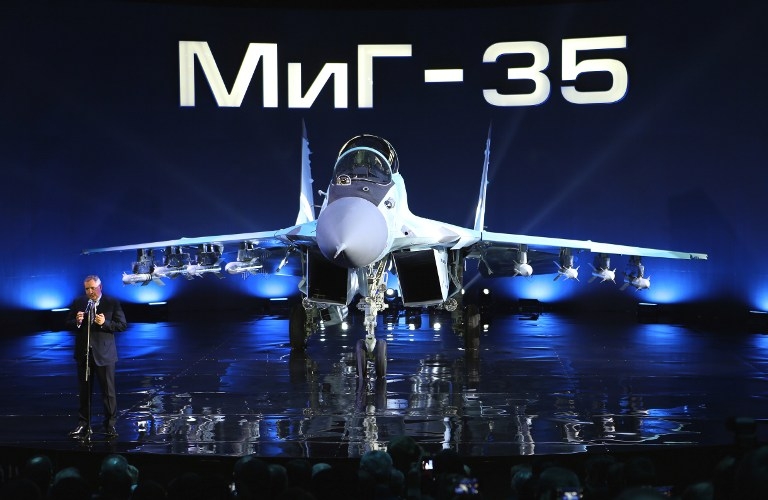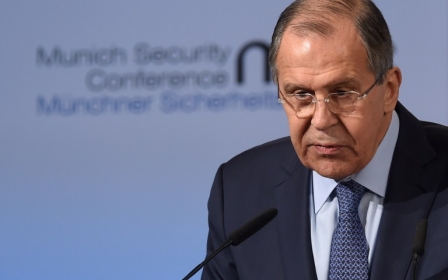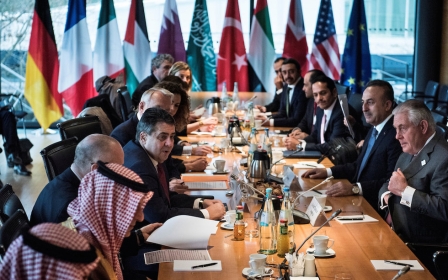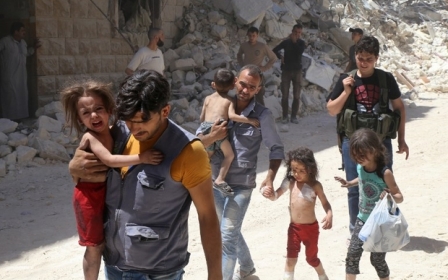Next-generation fighter jet deal signed by Russia and UAE

Russia and the UAE signed an agreement this week to develop a fifth-generation fighter jet.
The deal was announced by Sergei Chemezov, the CEO of the Rostec State Corporation, at the International Defence Exhibition in Abu Dhabi, the Emirati capital.
'We will try to create a modern aircraft with modern avionics and it is going to be a brand new aircraft'
- Sergei Chemezov, CEO Rostec State Corporation
“We have signed an inter-governmental agreement with the UAE, and the two sides have agreed to work in the development of fifth generation light combat aircraft. We will try to create a modern aircraft with modern avionics and it is going to be a brand new aircraft,” said Chemezov, who is reportedly a close ally of Russian President Vladimir Putin.
The aircraft that is expected to be a variation of the MiG-29 fighter jet.
“The work involves sophisticated technology and highly complicated equipment. It almost took a decade for us to create our own fifth generation aircraft in Russia,” he added.
"We shall probably begin this work next year. The project is difficult, I think the plane will be created in seven or eight years, no earlier,” Chemezov said, emphasising that the project would be completed no sooner than 2025.
New UAE factory for jet
New facilities will be built in the UAE to manufacture the aircraft, but the total investment involved in the deal was not disclosed.
Rostec, Russia’s largest military conglomerate, have signed a similar agreement with India to develop light combat aircraft.
Denis Manturov, the Russian industry and trade minister, was also in Abu Dhabi and said: "The UAE has also expressed interest in the Russian military warplane Su-35.”
'The UAE has also expressed interest in the Russian military warplane Su-35'
- Denis Manturov, Russian industry and trade minister
Chemezov said low oil prices had not significantly affected demand for Russian military exports.
"Of course it impacts everybody because the main revenues here are based on oil and gas but so far we don’t feel any reduction or slowdown. The weapons market has not reduced considerably," he said.
Bloomberg reported: “Iran’s resurgence as a regional power following last year’s nuclear deal with the U.S. is spurring military spending in the Middle East after budgets stuttered following the oil-price slump.”
Regarding Iran, Chemezov stressed that it was forbidden to export offensive weaponry to Iran, but that there was no ban on defensive weaponry.
In that vein, he said: “As for anti-aircraft S-300 system (surface to air missile system), we have supplied to Iran and we completed our deliveries last year. If they address us to deliver something else in defence system we will review it. The total value is around $1 billion in the supply of S-300.”
New MEE newsletter: Jerusalem Dispatch
Sign up to get the latest insights and analysis on Israel-Palestine, alongside Turkey Unpacked and other MEE newsletters
Middle East Eye delivers independent and unrivalled coverage and analysis of the Middle East, North Africa and beyond. To learn more about republishing this content and the associated fees, please fill out this form. More about MEE can be found here.




